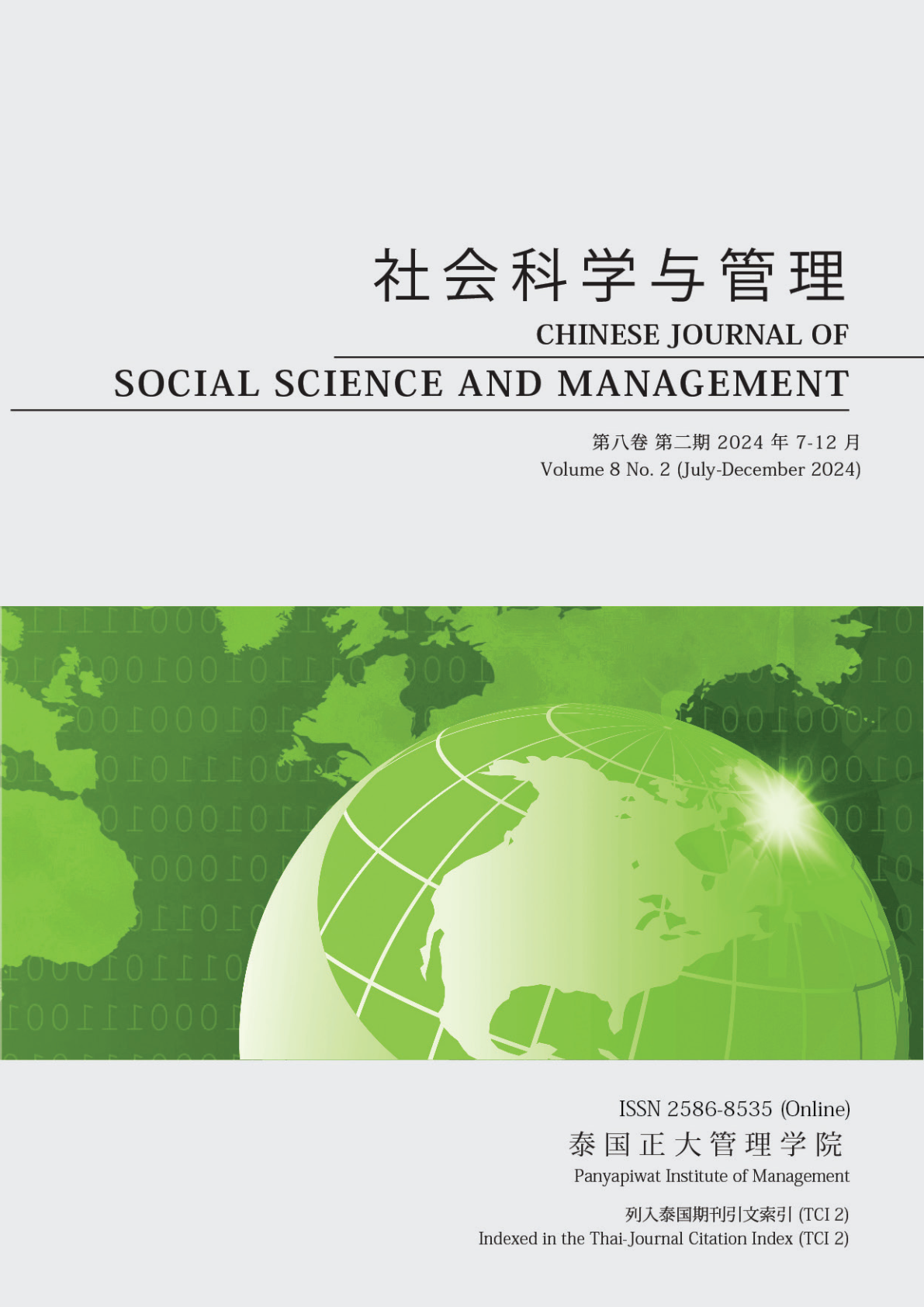THE RELATIONSHIP BETWEEN INNOVATION INCENTIVE, KNOWLEDGE REUSE, AND INNOVATION PERFORMANCE
Main Article Content
Abstract
In today’s rapid development of the knowledge economy and Internet economy, increasingly more enterprises are integrating internet technology into their development in order to strengthen the driving role of innovation. However, with the high risk and uncertainty of innovation, enterprises often need to take the initiative to create an organizational environment that encourages innovation, and guide employees to actively carry out innovative activities through certain incentive measures. This paper adopts the method of multiple regression analysis to carry out hypothesis testing, analyzes the connotation and forms of innovation performance of internet enterprises, puts forward the conceptual model between innovation incentives, knowledge reuse, knowledge information systems and innovation performance, and sorts out the influencing factors of innovation performance. The main effects, moderating effects and mediating effects among the factors were also studied. The results show that first, enterprise innovation performance can be significantly improved by external incentives, while internal incentives have no significant effect on the innovation performance of internet enterprises; second, knowledge reuse behavior can be enhanced by strengthening internal incentives, while the external incentives have no significant predictive effect on employee knowledge reuse; and third, innovation performance can be improved by knowledge reuse. This study provides help for enterprises who seek to build knowledge information systems driven by innovation and guidance for enterprises’ innovation decision-making.
Article Details

This work is licensed under a Creative Commons Attribution-NonCommercial-NoDerivatives 4.0 International License.
Chinese Journal of Social Science and Management Editorial Division
The Office of Research and Development, Panyapiwat Institute of Management
85/1 Moo 2, Chaengwattana Rd., Bang Talat, Pakkred, Nonthaburi 11120, Thailand
Tel. 02 855 01048 E-mail: cjssm@pim.ac.th
References
Allen, T. J. (1977). Managing the flow of technology: Technology transfer and the dissemination of technological information within the R&D organization. MIT Press.
Au, Y. N., Hui, R. M. H., & Choong, O. Y. (2022). Facilitating the Malaysian manufacturing sector in readiness for industry 4.0: A mediating role of organization innovation. International Journal of Asian Business and Information Management, (1), 1-23.
Balkin, D. B., & Mejia, L. R. (2000). Is CEO pay in high-technology firms related to innovation. Academy of Management Journal, 46(6), 1118-1129.
Boh, W. F. (2008). Reuse of knowledge assets from repositories: A mixed methods study. Information & Management, 45(6), 365-375.
Chang, H. H., & Chuang, S. S. (2011). Social capital and individual motivations on knowledge sharing, participant involvement as a moderator. Information & Management, 48(10), 9-18.
Chen, J., & Chen, Y. (2006). Research on enterprise technological innovation performance evaluation index system. Science of Science and Science and Technology Management, 27(3), 86-91. [in Chinese]
Cheung, P. K., Chau, P. Y. K., & Au, A. K. K. (2004). Does knowledge reuse make a creative person more creative. Decision Support Systems, 45(2), 219-227.
Drucker, P. (1996). What innovation really is? Chemtech, 26(11), 47-51.
Janssen, O., & Vegt, G. (2003). Joint impact of interdependence and group diversity on innovation. Journal of Management: Official Journal of the Southern Management Association, 29(5), 729-751.
Kankanhalli, A., Lee, O. K., & Kai, H. L. (2011). Knowledge reuse through electronic repositories: A study in the context of customer service support. Information & Management, 48(3), 106-113.
Kankanhalli, A., Tan, B., & Wei, K. K. (2005). Understanding seeking from electronic knowledge repositories: An empirical study. Journal of the Association for Information Science and Technology, 56(11), 1156-1166.
Lazear, E. P. (2000). Performance pay and productivity. American Economic Review, 5(16), 1346-1361.
Majchrzak, A., Cooper, L. P., & Neece, O. E. (2004). Knowledge reuse for innovation. Management Science, 50(2), 174-188.
Muo, I. (2013). Motivating & managing knowledge workers: Evidences from diverse industries & cultures. Journal of Management & Sustainability, 3(2), 13-27.
Patwary, A., Karim, A., Mohamad, K., Rehman, S., & Alam, M. M. D. (2024). Knowledge management practices on innovation performance in the hotel industry: Mediated by organizational learning and organizational creativity. Global Knowledge, Memory and Communication, 73(2), 662-681.
Ping, L. Q. (2016). Innovation incentive, innovation efficiency and economic performance: A complementary analysis of freeman’s Japanese national innovation system. Modern Japanese Economy, (1), 1-10. [in Chinese]
Tippins, M. J., & Sohi, R. S. (2003). IT competency and firm performance: Is organizational learning a missing link? Strategic Management Journal, 24(8), 745-761.
Weill, P., & Vitale, M. (2002). What IT infrastructure capabilities are needed to implement e-business models. Mis Quarterly Executive, 1(1), 17-34.
Yu, Z. L., & Zhang, P. (2009). An empirical study on top management team motivation and enterprise independent innovation. Science and Technology Management Research, 29(12), 384-386. [in Chinese]


